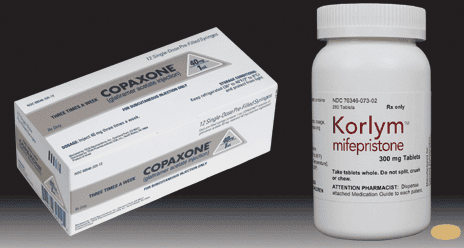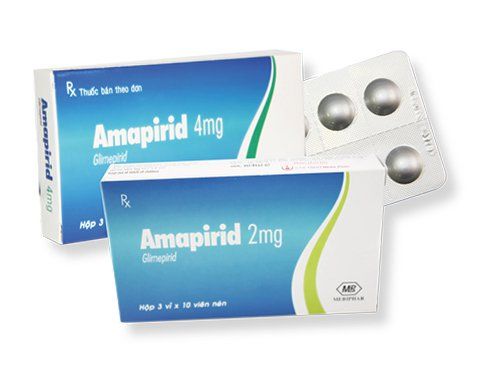This is an automatically translated article.
Amiritboston is a type 2 diabetes medication belonging to the sulfonylurea group. The drug works to lower blood sugar by stimulating the pancreas to increase insulin production. Refer to the article below for more information about the uses of Amiritboston.1. What are the uses of Amiritboston 2 and Amiritboston 4?
Amiritboston is prescribed for patients with type 2 diabetes who are not insulin dependent in combination with an effective diet and exercise program to control blood sugar.
The drug is contraindicated in the following cases:
The patient is allergic to the main active ingredient Glimepiride, sulfonylureas, sulphonamides or any of the excipients of Amiritboston. Patients with insulin-dependent type 1 diabetes, such as diabetes with a history of keto-acidosis. The patient presents with a diabetic pre-coma or coma. Patients with hepatic impairment, severe renal impairment, and women who are pregnant or planning to become pregnant should switch to insulin. Breast-feeding: Breastfeeding should be discontinued or switched to insulin.
2. Usage of Amiritboston 2 and Amiritboston 4
2.1. How to take Amiritboston Amiritboston is taken orally, and when taking it, the following general rules should be followed:
Start with the lowest dose to achieve the desired blood glucose level. Treatment is supervised by a qualified physician. The patient must take the medicine at the right dose and at the right time as prescribed by the doctor. It is recommended to take the medicine in the morning and it is imperative to have breakfast after taking the medicine. 2.2. Dosage of Amiritboston 2 and Amiritboston 4 Initial dose:
In previously untreated patients: 1-2 mg daily. Elderly, debilitated, malnourished patients: 1 mg a day Patients previously treated with another antidiabetic drug: 1-2 mg daily, up to a maximum of 2 mg daily. Maintenance dose:
1 – 4 mg daily (in patients previously receiving glimepiride 1 mg daily, increase to 2 mg daily if desired blood glucose levels are still not achieved after 1 to 2 weeks of treatment. up to a dose of 2 mg, the subsequent dose adjustment depends on the response and tolerability of the body); Dosage should be increased gradually, each increment not exceeding 2 mg per day, at intervals of 1 to 2 weeks; up to 8 mg a day. 2.3. Treatment in case of missed dose/overdose When forgetting to take a dose of Amiritboston, do not make up for it with a higher dose. Absolutely do not skip meals after taking the medicine. Always carry at least 20g of sugar with you in case of hypoglycemia. At the same time, patients need to strictly adhere to the diet still applied.
Amiritboston overdose can lead to severe, sometimes life-threatening, hypoglycemia requiring hospitalization. Mild episodes of hypoglycemia are usually treated with oral carbohydrates. Amdiaryl 4 dosage, diet, and physical activity may need to be adjusted.
More severe episodes of hypoglycaemia with convulsions, coma, or neurological damage must be treated with glucagon (subcutaneously or intramuscularly or intravenously) or with a hypertonic glucose solution. If a large overdose is potentially life-threatening, it should be detoxified immediately (by gastric lavage, vomiting, activated charcoal).
Hypoglycaemia may recur after it appears that the patient has made a clinical recovery, requiring prolonged carbohydrate administration and follow-up monitoring. The patient's blood glucose should be closely monitored for at least 24 hours. In severe cases, you will need to continue to monitor your blood sugar for a few more days.
3. Notes when taking Amiritboston
The doctor will need to adjust the dose in the following cases:
Laboratory indicators of insulin sensitivity improve when the disease is under control, the patient's need for glimepiride may decrease. after treatment for some time. To avoid hypoglycemia, it is necessary to reduce the dose or stop taking the drug in time. The patient's weight changes. The patient's activities are disturbed. Predisposing factors may increase the sensitivity of hypoglycaemia or hyperglycemia. There is currently no exact dosage regulation between Glimepiride and other oral antidiabetic agents. When switching from another oral antidiabetic agent to glimepiride, it should still be initiated with 1 mg and then increased as above, regardless of the patient's maximum dose of the other antidiabetic agent. But it is necessary to pay attention to the effectiveness and duration of previous antidiabetic drugs in the patient. It may be necessary to discontinue Amiritboston for a period of time to avoid the additive effect of the two drugs leading to hypoglycaemia. When the patient benefit of Glimepiride is reduced, it may be necessary to use it in combination with insulin. Glimepiride may also be used in combination with other non-beta-cell-directed oral antidiabetic agents. Loss of glycemic control can occur in patients who are stable on antidiabetic regimens but have stressors such as fever, infection, trauma, or surgery. Allergic Reactions: Allergic reactions have been reported during treatment with Amiritboston including hypersensitivity, Stevens-Johnson syndrome, angioedema. If an allergic reaction is suspected, promptly stop taking Amiritboston. Hemolytic anemia: Hemolytic anemia has been reported in both patients with deficiency or without glucose 6-phosphate dehydrogenase (G6DP) deficiency. Increased cardiovascular risk with all sulfonylureas: An increased cardiovascular risk has been reported with oral hypoglycaemic agents compared with diet alone or diet combined with insulin. Low or high blood sugar, impaired vision can reduce the body's ability to focus and react. Therefore, caution should be exercised when driving or operating machinery. Amiritboston should not be used in patients with rare hereditary problems of total lactase deficiency, galactose intolerance or glucose-galactose malabsorption.
4. Amiritboston side effects
Some side effects of Amiritboston include: hypoglycemia, sweating, anxiety, nervousness, tachycardia, increased blood pressure, arrhythmia, angina, temporary visual disturbances due to changes in vision. changes in blood glucose levels, mild or severe thrombocytopenia.
Usually these side effects go away when the drug is stopped.
5. Amiritboston drug interactions
Oral diabetes drugs, insulin, chloramphenicol, coumarin derivatives, miconazole, MAOIs, phenylbutazone, blockers increase the hypoglycemic effect of Amiritboston. Acetazolamide, barbiturates, phenytoin, diuretics, glucagon reduce the effect of Amiritboston. Antihistamines H2, reserpine, clonidine, alcohol: change the effect of Amiritboston. Amiritboston alters the effect of coumarin anticoagulants
Please dial HOTLINE for more information or register for an appointment HERE. Download MyVinmec app to make appointments faster and to manage your bookings easily.













